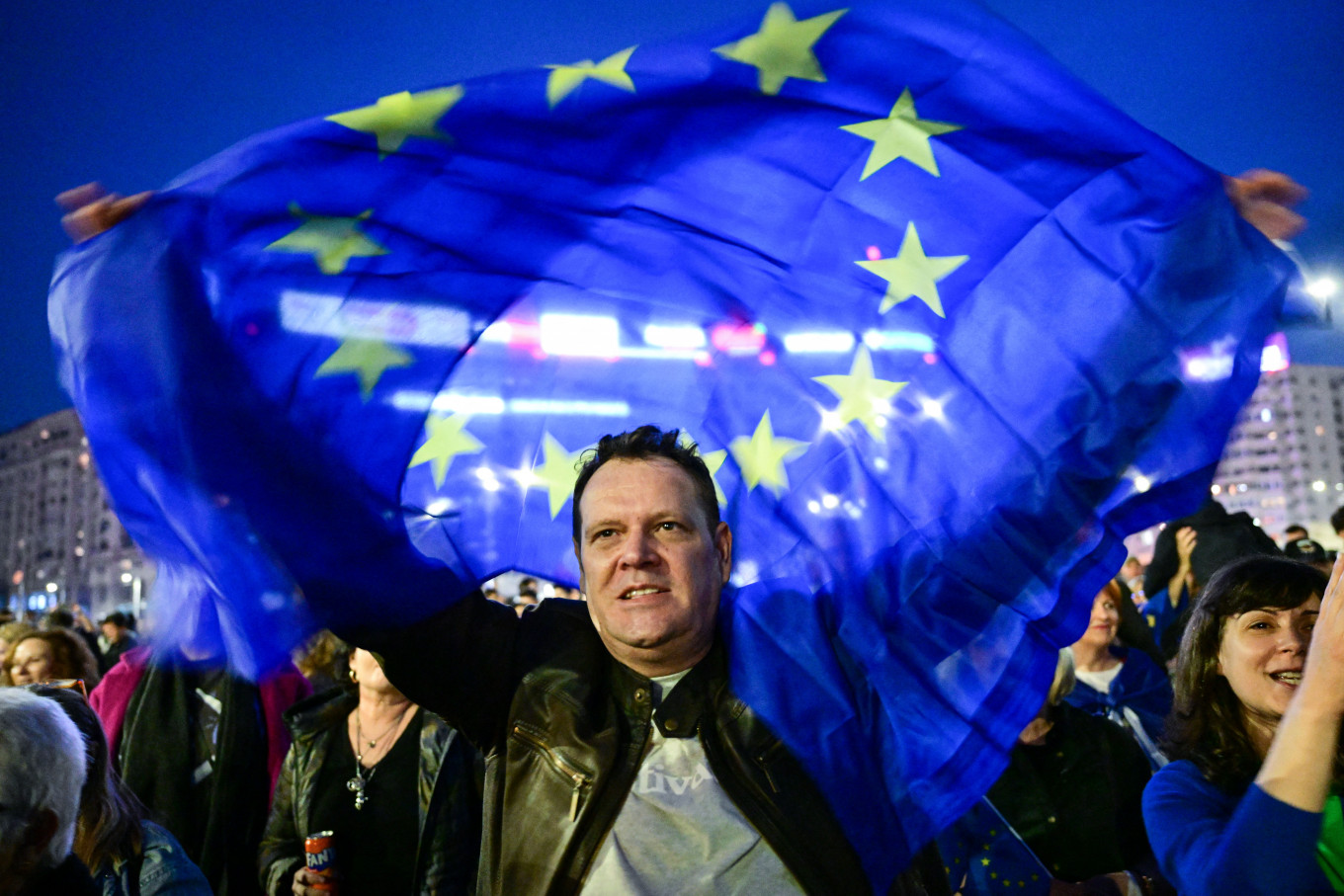“Today we’re in one era, and tomorrow we’ll be in a different era,” United States President Donald Trump loudly proclaimed from the White House Rose Garden as he hiked US tariffs to their highest level since 1909. “No one’s done anything quite like this!”
Not true.
On Oct. 1, 1949, Chairman Mao Zedong stood atop the Tiananmen, the entrance gate of Beijing’s Forbidden City, and declared China’s own “liberation day.” The Communist Party of China (CPC) thenceforth divided the 20th century into two eras: “before liberation”, under Chiang Kai-shek, and “after liberation”, under Mao, who threw China into three decades of political and economic chaos.
Now Trump’s “Liberation Day” promises similar tumult and disruption, but on a global scale.
For Europeans, in particular, it is as if the sun had suddenly burned out: the geopolitical system has lost its coherence and predictability as planets begin careening from their orbits.
Once reliant on the US, even as they sometimes looked down on its crudeness and naivete, Europeans now find themselves on their own, without gravity and forced to confront an American leader who is the ne plus ultra of baseness and ignorance.
Now that the old geopolitical order has been canceled, China and Russia are ready to step into the vacuum and create their version of order. But one is a deracinated Marxist-Leninist regime with lots of military hardware, geography and natural resources, but an economy smaller than Canada’s, and the other is a rejuvenated Leninist one-party state with a massive economy, a thin-skinned leader and a vibrant global tech hub.

